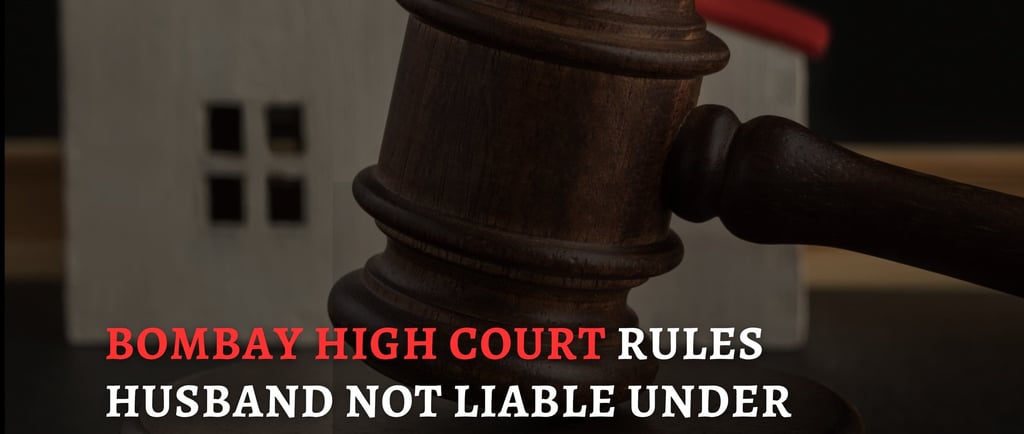Bombay High Court Rules Husband Not Liable Under Domestic Violence Act for Payment of Installments on Under-Construction Flat
The Bombay High Court, in Srinwati Mukherji v. State of Maharashtra & Ors., held that an under-construction flat not in possession of either spouse does not qualify as a "shared household" under Section 2(s) of the Protection of Women from Domestic Violence Act, 2005. Justice Manjusha Deshpande ruled that the husband cannot be directed to pay installments for such a property, as the statutory protection under the Act applies only to premises that are existing and capable of being occupied.
7/9/20251 min read


In this case, the petitioner, a woman, approached the Bombay High Court seeking a direction to her estranged husband to pay pending installments towards a flat that was jointly booked by the couple. The flat in question was still under construction and not in the physical possession of either party. The petitioner claimed such payment fell within the husband's obligations under the Protection of Women from Domestic Violence Act, 2005.
Justice Manjusha Deshpande, presiding over the matter, examined the definition of "shared household" under Section 2(s) of the DV Act. The Court noted that for a property to be considered a shared household, it must be in existence and capable of being occupied. Since the flat was still under construction and uninhabitable, it lacked the essential elements required to be classified as a shared household under the Act. The Court emphasized that the DV Act provides protection against dispossession only in relation to premises that are actually available for residence and not to properties that are incomplete or not yet in possession.
The Court held that the relief sought by the petitioner was not maintainable, as the flat could not be deemed a shared household under the law. Therefore, the husband could not be compelled to pay installments for the under-construction.
The Bombay High Court clarified that under the DV Act, liabilities related to under-construction properties that are not yet occupied by either party do not fall within the scope of shared household protections. Consequently, a husband cannot be held liable to pay such installments under the Act.
